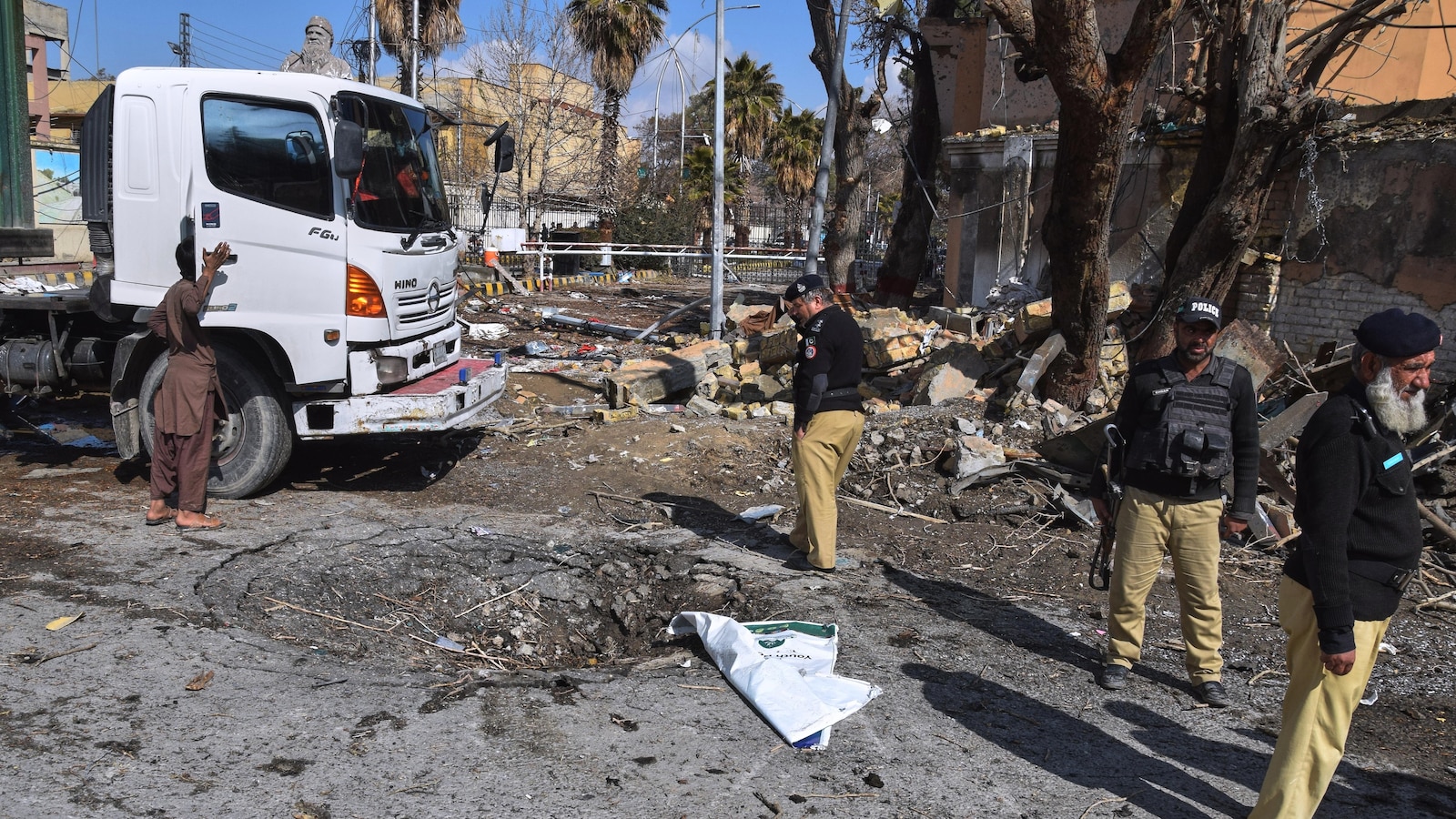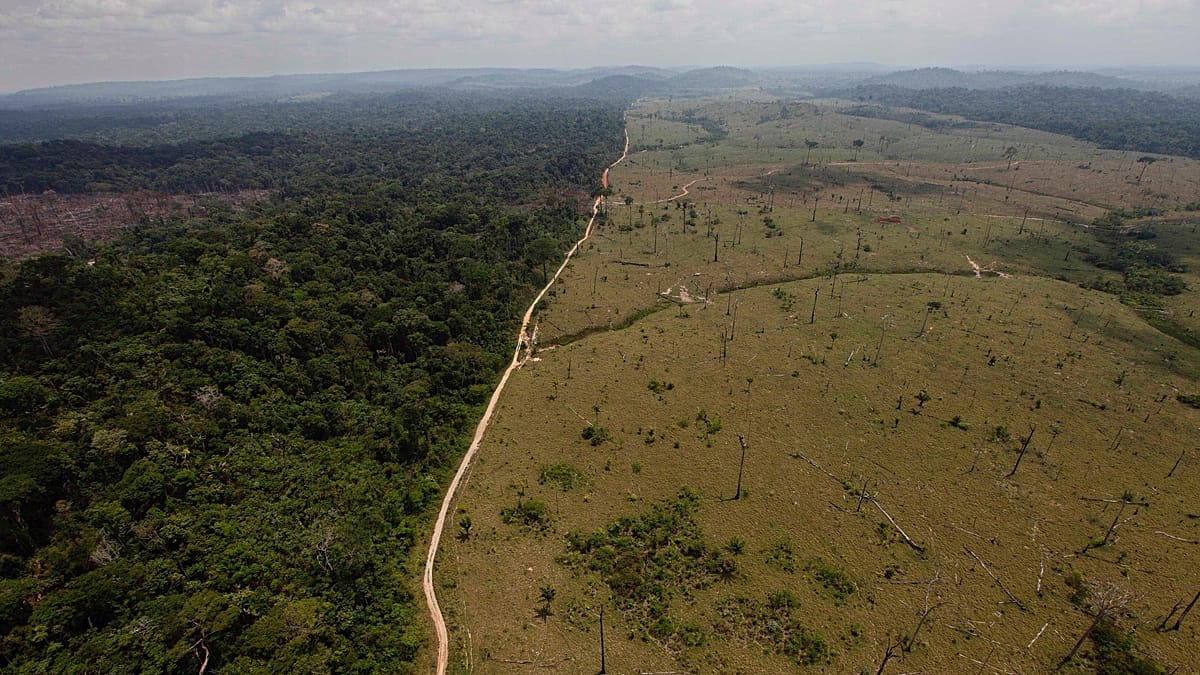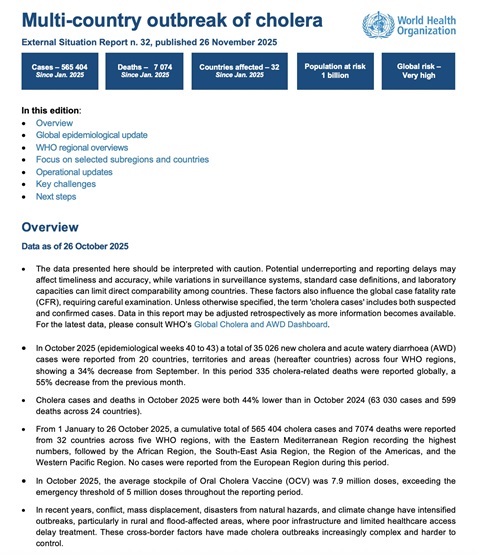Green energy strategy: Audit Office raises questions about ‘value for money’ – BBC

Audit Report on Northern Ireland’s Energy Strategy: A Setback for Sustainable Development Goals
Executive Summary
A report by the Northern Ireland Audit Office (NIAO) has concluded that the Department for the Economy’s implementation of its energy strategy cannot be deemed “value for money.” The strategy, which is critical for achieving several Sustainable Development Goals (SDGs), has been found to have “significant flaws.” Despite an expenditure of £107 million since 2020, there is a substantial risk that legally binding targets related to clean energy and climate action will not be met by 2030. The findings highlight severe deficiencies in governance, planning, and execution, undermining progress towards a sustainable future.
- SDG 7 & 13 Failure: Key targets for renewable energy and energy savings are at “very significant risk” of being missed.
- SDG 16 Weakness: Critical failures in governance, oversight, and accountability mechanisms have been identified.
- Misaligned Investment: £107 million has been spent without clear evidence of significant progress towards strategic goals.
- Operational Inefficiency: Abandoned projects and excessive consultations have hindered effective implementation.
Analysis of Performance Against Key Sustainable Development Goals
SDG 7 (Affordable and Clean Energy) & SDG 13 (Climate Action)
The core objectives of the energy strategy are directly aligned with SDG 7, which aims to ensure access to affordable, reliable, sustainable, and modern energy for all, and SDG 13, which calls for urgent action to combat climate change. The NIAO report indicates a profound failure to advance these goals.
- Energy Savings Target (SDG 7.3): The strategy has achieved only 1% of its targeted energy savings from buildings and industry, demonstrating a near-total failure to improve energy efficiency.
- Renewable Energy Target (SDG 7.2): The goal for electricity generation from renewable sources is currently facing a 35% shortfall, jeopardising the transition away from fossil fuels and the commitment to climate action.
- Net-Zero Emissions (SDG 13): The failure to meet these foundational targets places the broader, legally binding net-zero emissions commitment in serious doubt.
SDG 16 (Peace, Justice, and Strong Institutions)
The effectiveness of public institutions is central to the achievement of all SDGs. The NIAO report exposes significant institutional weaknesses within the Department for the Economy and its oversight bodies, contravening the principles of SDG 16.
- Lack of Oversight: The designated oversight group did not formally review the strategy’s progress against its targets until September 2024, more than two and a half years after the strategy’s publication.
- Accountability Gaps: The report noted that actions approved in plans would “effectively disappear from view,” with decisions made by senior officials to not deliver them, all without a clear accountability mechanism.
- Ineffective Processes: An over-reliance on public consultations, with more than half of the 2024 actions involving this step, was found to risk jeopardising effectiveness.
SDG 9 (Industry, Innovation, and Infrastructure) & SDG 11 (Sustainable Cities and Communities)
The strategy’s failure extends to its role in fostering sustainable industry and infrastructure. Abandoned initiatives represent missed opportunities to drive innovation and build resilient, sustainable communities as envisioned by SDG 9 and SDG 11.
- A scheme to improve energy efficiency in businesses was announced, consulted on, and subsequently abandoned.
- A proposed “one-stop shop” for information on decarbonisation, a key piece of public-facing infrastructure, was also abandoned.
Stakeholder Responses and Recommendations
The report has elicited strong reactions from political stakeholders, who have called for a fundamental reassessment of the strategy and its implementation.
- Department for the Economy: Minister Caoimhe Archibald stated the department is “taking on board the recommendations” and will publish a review of its progress before the end of the year.
- DUP (Economy Committee Chair): Phillip Brett stated the report confirms the need for a “reset” to establish “realistic targets that we can actually meet.”
- SDLP (Economy Spokesperson): Sinéad McLaughlin described the report as an indictment that “exposes a complete absence of urgency, leadership and accountability in tackling the climate crisis.”
The Department for the Economy has committed to implementing the report’s recommendations and publishing a mid-term review of the strategy by the end of 2025.
1. SDGs Addressed in the Article
-
SDG 7: Affordable and Clean Energy
- The article’s central theme is Northern Ireland’s “green energy strategy,” which aims to deliver “affordable energy” and increase the use of renewables. The failure to meet targets for energy savings and renewable electricity generation directly relates to this goal. The text explicitly mentions “a 35% shortfall” for the renewable electricity target and achieving only “1% of the targeted energy saving.”
-
SDG 13: Climate Action
- The energy strategy was created to “comply with UK-wide requirements to reduce emissions” and “deliver net-zero targets.” The article highlights the “very significant risk” that these climate-related targets will be missed, which is a core concern of SDG 13. The entire strategy is a climate action measure that is failing in its implementation.
-
SDG 16: Peace, Justice and Strong Institutions
- The Northern Ireland Audit Office’s report heavily criticizes the “Department for the Economy” for its implementation of the strategy. Phrases like “significant flaws,” “concerns around governance and oversight,” “absence of… leadership and accountability,” and the failure of the “energy strategy oversight group” all point to issues with institutional effectiveness, accountability, and transparency, which are central to SDG 16.
-
SDG 11: Sustainable Cities and Communities
- The article mentions a specific target for “energy saving from buildings and industry.” Improving energy efficiency in buildings is a key component of making human settlements more sustainable and reducing their environmental impact, which aligns with the objectives of SDG 11.
2. Specific Targets Identified
-
Target 7.2: Increase substantially the share of renewable energy in the global energy mix.
- The article directly addresses this target by discussing Northern Ireland’s goal for “electricity from renewable sources.” The report’s finding that this target “currently faces a 35% shortfall” indicates a failure to make sufficient progress towards this objective.
-
Target 7.3: Double the global rate of improvement in energy efficiency.
- This target is reflected in the strategy’s “energy saving target from buildings and industry.” The article provides a stark measure of failure against this goal, stating that “Just 1% of the targeted energy saving… has been achieved since the strategy launched.”
-
Target 13.2: Integrate climate change measures into national policies, strategies and planning.
- The entire “multi-million pound green energy strategy” is an example of integrating climate change measures into regional policy. However, the Audit Office’s conclusion that its implementation is not “value for money” and that legally binding targets are at “significant risk” demonstrates a failure in the effective execution of this integrated policy.
-
Target 16.6: Develop effective, accountable and transparent institutions at all levels.
- The article is a critique of institutional failure. The Audit Office found a lack of “governance and oversight,” noted that the oversight group failed to track progress for over two and a half years, and highlighted that “there was no overall accountability mechanism” for abandoned actions. This directly relates to the need for effective and accountable institutions.
3. Indicators Mentioned or Implied
-
Percentage of energy savings target achieved
- The article explicitly states that “Just 1% of the targeted energy saving from buildings and industry has been achieved.” This is a direct quantitative indicator of progress (or lack thereof) towards energy efficiency goals (Target 7.3).
-
Shortfall in renewable energy generation target
- The statement that “the target for electricity from renewable sources currently faces a 35% shortfall” serves as a clear indicator for measuring progress towards increasing the share of renewable energy (Target 7.2).
-
Value for money of public investment
- The Audit Office’s conclusion that it “cannot conclude” that the £107m spent represents “value for money” is a qualitative indicator of institutional effectiveness and financial accountability (Target 16.6). It measures the efficiency of public spending on sustainable development projects.
-
Number of legally binding targets at risk
- The report’s finding that there is a “very significant risk” that “two of the three key targets will be missed by 2030” is an indicator of the overall failure of the strategy’s implementation and the ineffectiveness of the governing institutions (Targets 13.2 and 16.6).
4. Summary Table of SDGs, Targets, and Indicators
| SDGs | Targets | Indicators |
|---|---|---|
| SDG 7: Affordable and Clean Energy | 7.2: Increase the share of renewable energy. 7.3: Improve energy efficiency. |
– 35% shortfall in the target for electricity from renewable sources. – 1% of the targeted energy saving from buildings and industry has been achieved. |
| SDG 13: Climate Action | 13.2: Integrate climate change measures into national policies, strategies and planning. | – A “very significant risk” that two of the three key legally binding targets of the green energy strategy will be missed by 2030. |
| SDG 16: Peace, Justice and Strong Institutions | 16.6: Develop effective, accountable and transparent institutions at all levels. | – £107m of public money spent without achieving “value for money”. – Lack of an “overall accountability mechanism” for actions. – Oversight group failed to review progress against targets for over two and a half years. |
| SDG 11: Sustainable Cities and Communities | 11.6: Reduce the adverse per capita environmental impact of cities. | – The failure to achieve more than 1% of the energy saving target from buildings. |
Source: bbc.com
What is Your Reaction?
 Like
0
Like
0
 Dislike
0
Dislike
0
 Love
0
Love
0
 Funny
0
Funny
0
 Angry
0
Angry
0
 Sad
0
Sad
0
 Wow
0
Wow
0
















































































